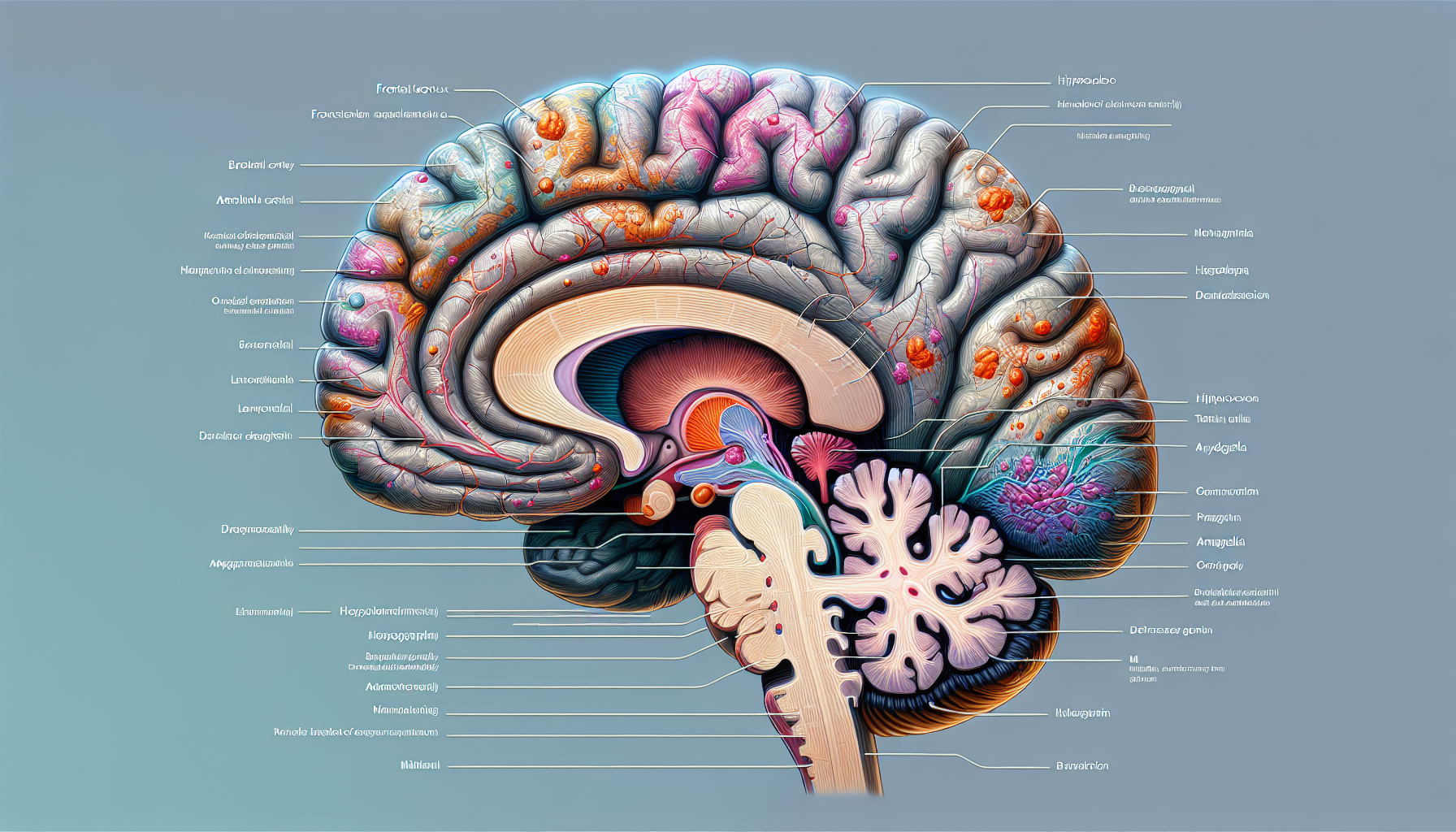Substance use, whether recreational or medicinal, has a profound impact on the human body. Among the various health concerns, the effects on the brain are particularly significant due to the central role the brain plays in governing all bodily functions. Recent research has shed light on how different substances alter brain structure, affecting everything from cognitive abilities to emotional regulation. This article delves into the current understanding of these changes, potential recovery pathways, and strategies for maintaining optimal brain health.
Substance Use and Brain Alterations
The brain is a remarkably adaptable organ, capable of forming new connections and pathways in response to experiences, a phenomenon known as neuroplasticity. However, the introduction of substances can disrupt this intricate system. Drugs such as alcohol, nicotine, cannabis, and opioids interact with the brain’s neurotransmitters, altering the way messages are sent, received, and processed within the neural network.
Alterations in Brain Regions
Repeated substance use can lead to changes in brain regions critical for judgment, decision-making, learning and memory, and behavior control. For instance, the prefrontal cortex, which is responsible for executive functions such as planning and impulse control, can be significantly affected. This may manifest in a user’s decreased ability to make well-considered decisions or resist urges, feeding into the cycle of addiction.
The hippocampus, paramount for memory and learning, can also be compromised. Studies have shown that substance use can lead to hippocampal shrinkage, which correlates with memory impairments. Moreover, the reward system, including the nucleus accumbens, becomes hijacked by substances, reinforcing the cycle of addiction through the release of neurotransmitters like dopamine.
Neurochemical Imbalance
Substance use often leads to an imbalance in neurochemicals. Dopamine surges can lead to feelings of euphoria but can also deplete the brain’s natural stores, leading to dependence and withdrawal symptoms when not using the substance. Other neurotransmitters, such as GABA and glutamate, can also be imbalanced, affecting mood and excitability.
Recovery and Brain Plasticity
While the impact of substance use on the brain can be daunting, the brain’s plasticity offers hope for recovery. With cessation of use and appropriate interventions, the brain can form new pathways and repair some of the damages. Recovery processes are multifaceted, including medical treatment, therapy, lifestyle changes, and support systems.
Therapeutic Interventions
Cognitive-behavioral therapy and other therapeutic modalities can help individuals develop new coping mechanisms and cognitive strategies, effectively rewiring the brain to decrease the reliance on substances. Support groups provide a community for sharing experiences and strategies, which can aid in the recovery process.
Lifestyle Adjustments
Engaging in healthy brain activities, such as cognitive training, physical exercise, and social interactions, can stimulate neurogenesis and the strengthening of neural networks. Nutritional support is also vital, as the brain requires a range of nutrients to function optimally and heal from substance-induced damage.
Maintaining Brain Health
The journey towards maintaining brain health is ongoing and requires a holistic approach, encompassing diet, exercise, mental stimulation, and emotional well-being.
Diet and Nutrition
A balanced diet rich in omega-3 fatty acids, antioxidants, and vitamins is crucial for brain health. Foods such as fatty fish, nuts, blueberries, and leafy greens provide the necessary nutrients for maintaining and repairing brain cells.
For more on the intricate relationship between nutrition and cognitive function, consider exploring the topic of Cognitive Function and Nutritional Supplementation.
Physical Exercise
Physical activity has been shown to increase the production of neurotrophic factors, which support neuron growth and survival. Exercise also promotes blood flow to the brain, enhancing cognitive abilities and mood.
Mental Stimulation
Continuous learning and cognitive challenges, such as puzzles and new skill acquisition, can help maintain cognitive resilience. The adage "use it or lose it" is particularly true when it comes to brain function.
For insights into the benefits of lifelong learning on the brain, read about The Impact of Continuous Learning on Neural Plasticity.
Stress Management
Chronic stress can be detrimental to brain structure and function. Techniques such as mindfulness meditation, deep breathing exercises, and yoga can reduce stress and its harmful effects on the brain.
To delve deeper into stress reduction for brain health, take a look at Managing Stress for a Healthier Brain.
Sleep and Hydration
Adequate sleep and hydration are often overlooked aspects of brain health. Sleep allows the brain to consolidate memories and remove toxins, while hydration ensures essential chemical reactions within the brain occur smoothly.
Social Engagement
Social interactions and relationships can stimulate the brain and may even reduce the risk of cognitive decline. Engaging in meaningful conversations and maintaining strong social networks are beneficial for brain health.
External Resources
To further understand the impact of substance use on the brain and the importance of recovery, here are some additional high-quality resources:
- The Neurobiology of Substance Use, Misuse, and Addiction: A comprehensive look at how various substances affect brain function and structure.
- Neuroplasticity and Addiction Recovery: An exploration of the brain’s ability to recover from substance-induced changes.
- Dietary Neurotransmitters: A Narrative Review on Current Knowledge: Discusses how diet influences neurotransmitter levels and brain health.
- The Role of Exercise in Building a Resilient Brain: Examines the effects of physical exercise on brain health and recovery.
- Social Relationships and Risk of Dementia: A study highlighting the importance of social engagement in maintaining cognitive health.
In conclusion, understanding the complex relationship between substance use and brain structure is crucial for both prevention and recovery. By staying informed and adopting a comprehensive approach to brain health, individuals can mitigate the risks and promote recovery, leading to a healthier, more resilient brain.



